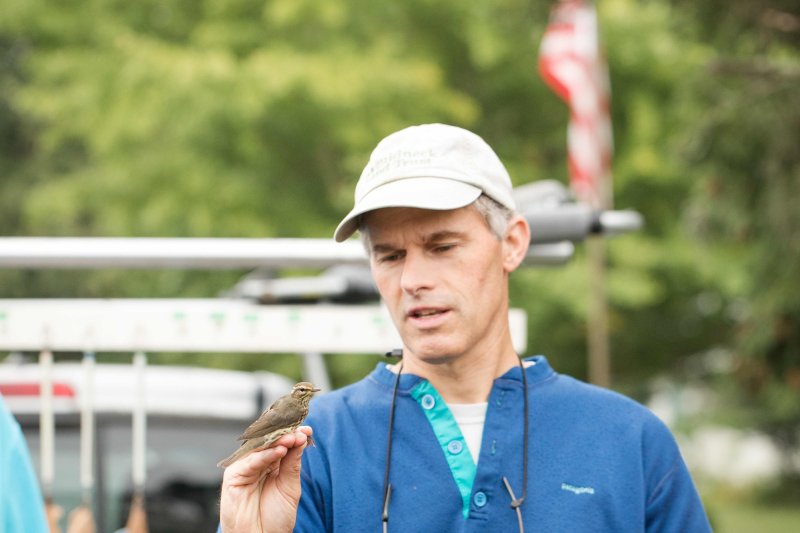
Clinical experience, caring faculty paved the path from nursing classroom to critical care
Benjamin Silva ’24 brings mission-driven care to high-acuity patients as an intermediate intensive care nurse in the Brown Health system.
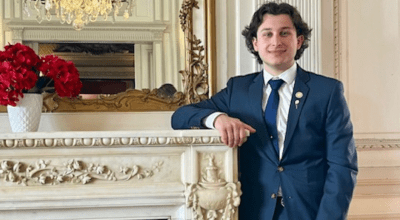
When Benjamin Silva ’24 first stepped onto Salve Regina University’s oceanside campus, something clicked. He had toured several schools while trying to decide between pursuing medicine or nursing, but Salve immediately felt different; like a place where he could grow. Its small class sizes, mission-driven culture and strong clinical network offered the support and challenge he needed.
Today, Silva is a registered nurse at Miriam Hospital, caring for patients in a surgical intermediate intensive care unit – a role he calls both demanding and deeply fulfilling. But the foundation of his success was built in Salve’s nursing program, a nationally respected curriculum rooted in experiential learning, compassionate care and a strong community of students and faculty.
Hands-on learning. Real impact.
One of the defining features of Salve’s nursing program is its tight-knit cohort with only 60-70 students. Rather than moving anonymously through large lecture halls, nursing majors learn with and lean on each other for four years.
"It felt like a community. Everyone is in the same boat, and the program naturally forced us into a good group of friends who study, support each other and have each other's backs,” Silva said.
Salve’s nursing students also complete rigorous clinical rotations across a variety of specialties, ensuring they enter the workforce as flexible, well-prepared generalists. “Clinicals were so well-rounded and allowed me to enter the field confidently,” he said.
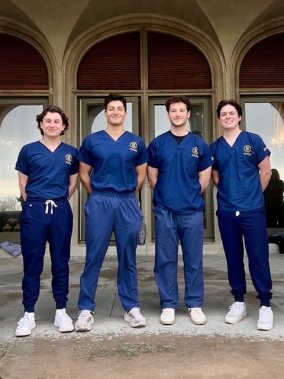
Silva rotated through labor and delivery, pediatrics, psychiatric care, medical-surgical units, geriatrics and more before choosing a specialty area for his capstone – the intensive care unit (ICU) at South County Hospital.
Silva spent 12-hour shifts paired one-on-one with an ICU nurse, gaining a full picture of patient care – far more intensive than a standard clinical rotation. “It was a really powerful hands-on experience,” he said. “We worked the nurse’s full schedule, and I quickly gained a sense of independence and confidence in talking with patients and providing care.”
Throughout his time in the program, Silva found mentors who strengthened his skills and his mindset. Dr. Louise Sullivan, his advisor and assistant professor of nursing, made a lasting impression. “She was the best,” he said. “Absolutely the best.”
He also credits Dr. Terri Legare, assistant professor and associate chair of nursing, who taught complex care and emergency medicine. “She gave us the introduction to clinical care and the more acute, complex issues,” he said. “Her courses helped us feel prepared for high-acuity settings.”
These hands-on, high-support relationships are hallmarks of the program, professors who know their students personally, notice their strengths and push them to grow.
In recognition of his dedication and academic excellence, Silva earned the department’s prestigious Catherine McAuley Award in 2024, given to the pre-licensure nursing student with the highest GPA as of the fall semester of senior year.
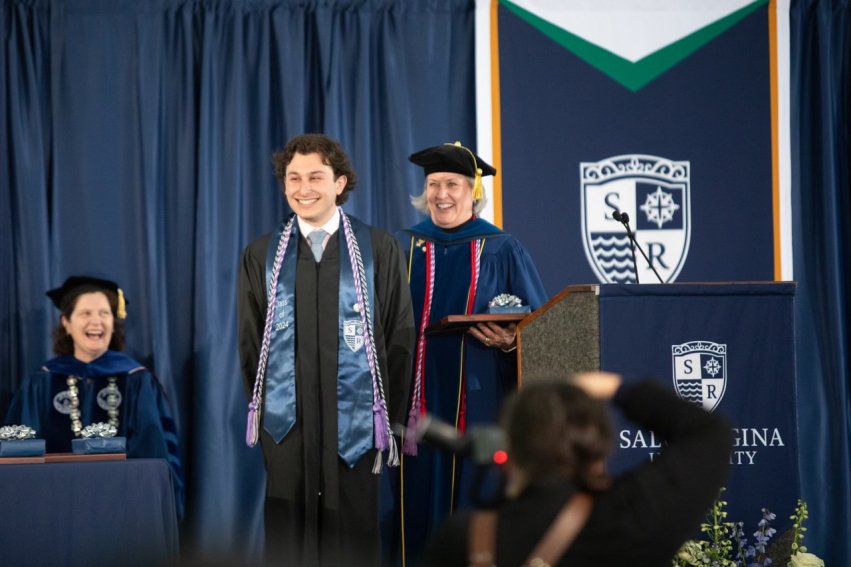
“It meant a lot to receive that award,” said Silva. “The program is full of so many smart and talented people, so it was a really special and meaningful surprise to be recognized in that way.”
Leading with mercy
Salve’s mercy mission emphasizes empathy, dignity and compassionate service – a philosophy woven tightly into the nursing curriculum.
“As a nurse, you have to approach your job with compassion,” Silva said. “Salve having that as the core value in its classes really formed our approach to our patients. It was always: put yourself in their shoes.”
That mindset stays with him today, especially as he works with diverse patient populations at Miriam Hospital.
“It helped me understand how to approach different cultures and how they see health care,” he said. “I can put what I learned into cultural context, which makes me a better nurse, and probably a better person as well.”
Prepared for the workforce
Silva’s smooth transition from student to full-time nurse is a testament to Salve’s emphasis on experiential learning. During his senior year, he completed a competitive one-year internship within the Brown Health system.
Instead of spending a few hours a week focused on a single assigned patient, he worked regular shifts alongside CNAs and nurses, caring for four to five patients at a time. That level of responsibility sharpened his critical-thinking skills and taught him to assess the whole patient rather than zeroing in on isolated tasks. “In clinicals, we might see eight or nine patients over an entire semester,” he explained. “But during my internship, I was seeing five patients every day.” The volume, variety and pace exposed him to a wider range of medical issues and helped him develop the intuition and confidence needed to transition seamlessly into professional practice.
“It gave me vital nursing skills, but also sharpened skills like time management,” he said. “Being an employee, not just a student there to learn, helped me understand critical thinking and look at the whole picture.”
Salve provided Silva with a strong foundation in pharmacology, the science of how medications work in the body, which further set him apart. The depth of the pharmacology coursework helped him make informed, safe decisions for his patients in fast-paced hospital settings.
“It’s the foundation of nursing, and that course has been so important in my career,” he shared. “Other nurses from other schools didn’t get pharmacology with the same intensity.”
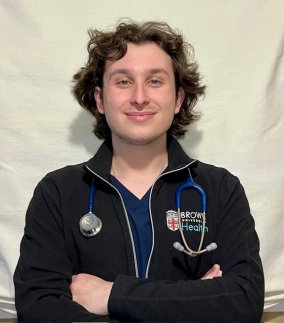
Today, Silva works in a surgical intermediate intensive care unit, treating a wide range of complex, high-acuity cases. He’s now preparing for the PCCN certification, a major milestone for intermediate intensive care nurses, and he’s considering long-term paths like becoming a nurse practitioner or CRNA.
For current Salve nursing majors, Silva’s advice is simple:
“Don’t stop learning. You never know enough. Even if you don’t grasp everything 100%, understanding it at a fundamental level will always help you later.”
Looking back, Silva is certain that Salve’s nursing program – its faculty, clinical experience, small cohorts and mission-driven approach – gave him the tools he needed to step confidently into one of the most challenging areas of health care.
“My internship, my capstone, my classes, all of it set me up to succeed,” he said. “Time management, prioritization, compassion, I use these things every single day.”
For a nurse working at the frontline of patient care, that preparation makes all the difference.

